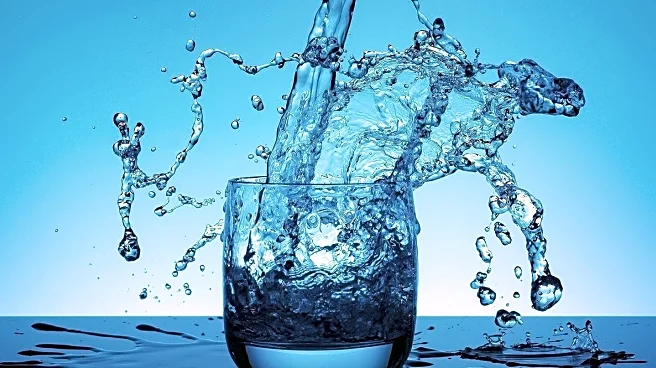What is the story about?
What's Happening?
A study conducted by Liverpool John Moores University has found that individuals who consume less than the recommended daily amount of water exhibit a stronger biological response to stress. The research involved 32 participants, divided into two groups based on their daily water intake. Those who drank less than 1.5 liters of water per day showed higher levels of cortisol, a stress hormone, compared to those who met the recommended guidelines of 2.5 liters for men and 2 liters for women. The study included stress tests such as mock job interviews and mental math challenges to measure cortisol levels before and after the tests.
Why It's Important?
The findings highlight the importance of adequate hydration in managing stress levels, which can have broader implications for public health. Elevated cortisol levels are associated with various health issues, including immune response, metabolism, and blood pressure regulation. This research suggests that maintaining proper hydration could be a simple yet effective strategy to mitigate stress-related health problems. It underscores the need for public awareness campaigns to promote sufficient water intake as part of a healthy lifestyle.
What's Next?
Further research may explore the long-term health impacts of chronic dehydration and its relationship with stress-related disorders. Health organizations might consider revising guidelines to emphasize the role of hydration in stress management. Additionally, public health initiatives could focus on educating communities about the benefits of adequate water consumption.

















